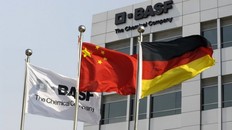
Investment and Expansion
BASF plans to invest up to €56 million in expanding its Polyvinylpyrrolidone (PVP) value chain over the next four years. This expansion will involve revamping existing plants in Ludwigshafen, Germany, and Geismar, Louisiana, as well as introducing PVP technology at BASF’s site in Shanghai, China. The company aims to increase its global PVP production capacities by up to 6,000 metric tons. All plants will adhere to the highest quality standards, specifically current Good Manufacturing Practice (cGMP).
Applications of PVP
PVP is a versatile polymer used in various industries due to its binding properties. It is water-soluble, non-irritant, temperature-resistant, pH-stable, non-ionic, and colorless. In the pharmaceutical industry, PVP is primarily used as an excipient in tablets under the name Kollidon®, serving as both a binder and disintegrant. It also functions as a lyophilization agent, suspension stabilizer, and thickener.
Other Industry Uses
Beyond pharmaceuticals, PVP-based products are utilized in cosmetics, detergents, and the food sector. In cosmetics, Luviskol® types are key components in hair styling products. In detergents, Sokalan® types help disperse particulate soil and prevent redeposition on fabrics. In the food sector, PVP is used for beer filtration and wine treatment under the name Divergan®. Additionally, Luvitec® plays a crucial role in producing membranes for micro- and ultra-filtration, used in dialysis and water filtration, and can also be used in special adhesives.
Historical Context
PVP has a long history at BASF, with the production process invented and patented by chemist Walter Reppe 75 years ago. The precursor of PVP, N-vinylpyrrolidone (NVP), has been produced in Ludwigshafen since 1939 and at BASF’s Geismar site since 1992.

